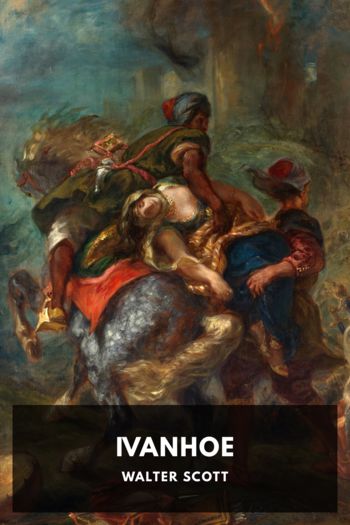Plays - Roswitha of Gandersheim (ebook reader play store TXT) 📗

- Author: Roswitha of Gandersheim
Book online «Plays - Roswitha of Gandersheim (ebook reader play store TXT) 📗». Author Roswitha of Gandersheim
Abraham and Paphnutius show Roswitha at her best as a dramatist. In both plays the scenes are well knit, the characterization deft and sure, and the dialogue admirably expressive. The opening scenes of Abraham reveal that power to suggest character and situation without wordy explanations which is essential in drama. We know at once, although we are not told, that Mary, mere child as she is, is not made of stern stuff, and that her vocation is doubtful. Her replies to the two holy hermits are all that they should be superficially, but through them penetrates a materialism antagonistic to their mystical exaltation. Equally rich in the quality of suggestion is the scene in the house of ill-fame which Abraham visits to rescue his niece from her evil life. She does not recognize him at first, but melancholy seizes her at the supper which it is her duty to enliven by her gaiety. There is the beauty which never ages and appeals to all nations in all times in the following scene, when the hermit, throwing off his worldly disguise, shows his hair grown white through vigils and fasts, and his tonsure, the badge of his thorn-crowned Master, and in words more compassionate than upbraiding moves his lost child to contrition. It is indeed amazing that so true and touching a scene, dealing with a subject which has led later dramatists into false sentiment, coarseness, or mere preaching, should have been written nearly a thousand years ago by an obscure nun in a convent in Lower Saxony.
Perhaps nothing in Paphnutius is on quite the same level of achievement, but a play is not made by a single scene, and Paphnutius as a whole is better than Abraham as a whole. Few will question that it is Roswitha’s masterpiece. It is very creditable to her that, although the stones of the two plays are similar, she should have shown such variety in the treatment of them. When we compare them we find hardly any repetition. It is interesting to notice that it is not Mary, brought up to the religious life from which she lapses and to which she turns again, who becomes a saint, but Thais, whose life from childhood has been spent in “dangerous delights.” There is a spice of irony in the fact that the penitence of Thais, who had not had Mary’s opportunities, is represented by the dramatist as being on a much higher spiritual plane. With true insight Roswitha makes Paphnutius treat his penitent with far more severity than the hermit Abraham treats Mary. Yet the angelic love of Paphnutius for Thais, thanks to the dramatist’s power of suggestion, penetrates through his austerity, although he never manifests it until the moment when he is assured through the vision of Paul, St. Anthony’s disciple, that the repentance of the sinner has caused that joy in heaven which exceeds all the joy that can be given by the righteous. Paphnutius alone among Roswitha’s plays has stood the test of stage representation in modern times,5 and come through it triumphantly, although the miraculous swiftness of Thais’s conversion was considered most “unnatural” by the critics who witnessed the performance.
Roswitha, it must be remembered, believed in miracles. The average Englishman is sceptical. As Mr. Chesterton has pointed out, he will not swear to the possibility of a thing he has not seen, although he is quite ready to swear to the impossibility of a thing he has seen. In the foreword which Mr. Chesterton wrote for the programme of the first performance of Paphnutius he compared Roswitha’s treatment of the story of Thais’s conversion with Anatole France’s in his well-known novel Thais. “This very strong and moving play (Paphnutius) was written by a person about as different from the author of ‘Thais’ as could be capable of wearing the human form, a devout woman, vowed to a restricted life, and writing in the





Comments (0)